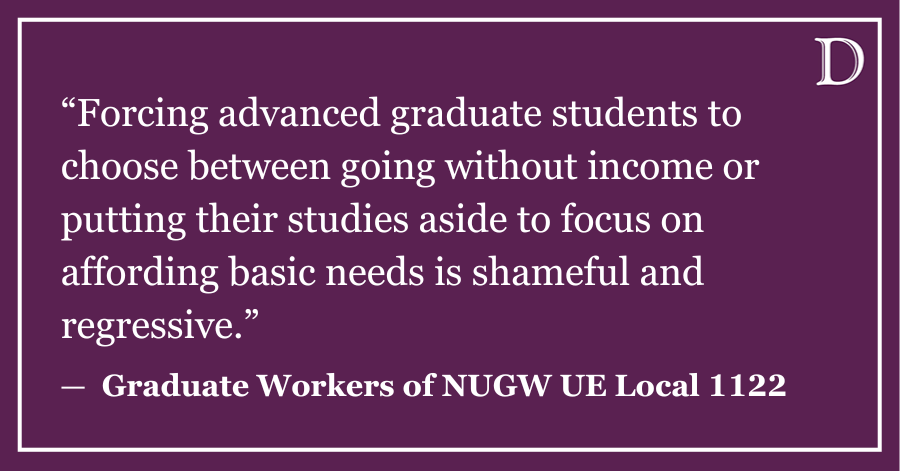“You can put a condom on an erect penis, but you can’t put a condom on your heart.”
That was Avril Thomas’s justification for refusing more than $300,000 in U.S. funding for her non-profit Living Hope to provide STI and HIV prevention education to teens in some of Cape Town’s poorest neighborhoods. The original appropriation was granted under the President’s Emergency Plan for AIDS Relief. As written in 2003, the PEPFAR law contained a mandate that 33 percent of all funding for prevention activities be spent on abstinence-until-marriage programs.
In July 2008, PEPFAR was reauthorized without the aforementioned provision. Accordingly, Living Hope was sanctioned to integrate alternative approaches to HIV prevention, including contraceptive use, into its curriculum as a stipulation for receiving the funds — the organization refused.
This example demonstrates what is sometimes referred to as “neo-colonial aid,” which frequently occurs in two paradigms. In cultural neo-colonialism, aid is distributed under conditional agreements of adherence to predominantly Western cultural beliefs, such as monogamy and abstinence. Economic neo-colonialism provides aid under the pretext that countries enact pro-Western business policies such as free market privatization. Additionally, donors may mandate that funds be used to purchase goods from specific companies or employ particular contractors for humanitarian work. In this context, provision of aid serves as an outlet for imposition of specific cultural beliefs or a subversive tool for financial gain.
As such, it is important to examine an organization’s methodology and efficacy before allocating resources. Effective programming necessitates an understanding of and immersion in local customs, rather than a patronizing dictation of foreign beliefs and practices. When it comes to HIV prevention, no single factor is more important than South Africa’s sexual culture and subcultures.
Compared to the United States, South Africa’s view of sex is relatively more liberal. As Thomas herself stated, “Sex is just a part of every day life in South Africa. (The urban poor) live in one-bedroom homes; a whole family shares a single bed. Baby sees mommy eat breakfast, go to the bathroom, put on make-up, have sex. It’s like it’s a normal thing.”
Nationally, sexual freedom has remained an integral policy of the post-apartheid government. In 1994, legislation was passed legalizing male-to-male sexual contact. This stands in stark contrast to the United States, which did not repeal sodomy laws at a national level until 2003, with the Supreme Court’s narrow ruling in Lawrence v. Texas.
Likewise, South Africa’s 1996 constitution, grounded in civil rights, explicitly outlaws discrimination based on sexual orientation and protects the right of women to seek abortions. South African jurisprudence also reflects a socially nonrestrictive attitude toward sexual practices. In January, the Pretoria High Court ruled legislation banning consensual sexual activity between 12- to 16-year-olds to be unconstitutional.
Given these cultural and political insights into sexuality in South Africa, questions about the effectiveness of US-propagated abstinence programming arise. According to an article published in the Cape Times in April 2011, “Results from U.S. studies during the era of Bush administration, where abstinence programmes were promoted, show that young people who took ‘virginity vows’ were less likely to be equipped with good sexual and reproductive health knowledge and more likely to become pregnant unintentionally. So, while abstinence programmes have no impact in delaying sexual activity, they do leave adolescents poorly prepared, uninformed and unprotected.”
Moreover, while abstinence may significantly mitigate a person’s risk of contracting HIV, it is not infallible. In South Africa, where rape and domestic abuse remain an issue, violent transmission of the disease presents a real challenge in combating the epidemic.
According to Mladen Poluta, professor of biomedical engineering at the University of Cape Town School of Medicine, “There is a longstanding culture of sexual entitlement among black South Africans and a predominant belief that real men don’t wear condoms.” Strikingly, in some regions, a misconception that sexual intercourse with a young virgin can cure men of HIV has led to the recurrent raping of young women and children. This devastating activity emphasizes the need for accessible, accurate information.
Overall, a focus on abstinence may be a reasonable and successful approach to preventing HIV infection in some contexts. However, given the reality of sexual culture in South Africa, programs that aim to educate people from a more culturally pertinent perspective are likely to yield better results.
Policies that increase the social capital of women and promote their protection and empowerment can help reduce the spread of infection by rape. In addition, such efforts will gradually improve the capacity of women to make decisions regarding contraceptive use.
Education regarding condoms and sexual health in general will produce a better-informed population, which may help diminish cultural opposition to the use of prophylactics. In South Africa and throughout the developing world, it is important to consider local customs and practices, as well as the broader implications of intervention, when determining which strategies will be most successful in affecting positive change.
Matt Guerrieri is a McCormick senior and a Global Paradigm Fellow based in South Africa. His views do not reflect the views of The Daily Northwestern. The Global Paradigm Project is intended to link students across the world in a substantive discussion of politics and policy. Visit politicsandpolicy.org/category/dispatches to read more posts from our Global Paradigm Fellows.










